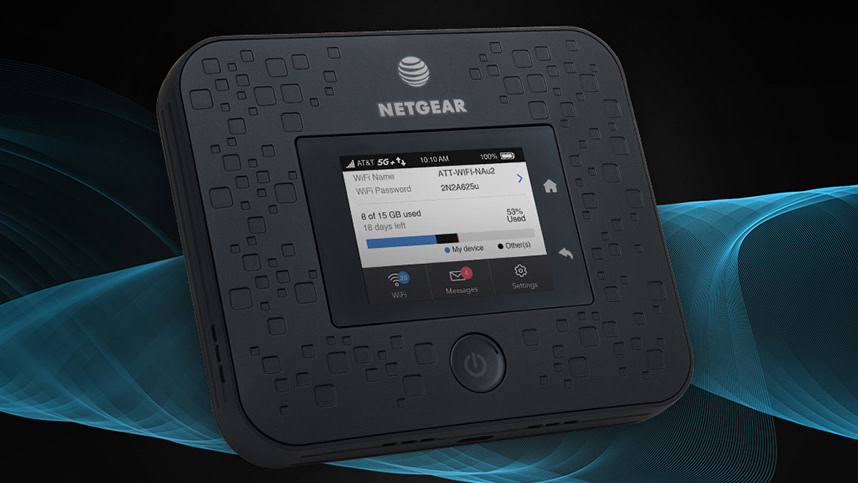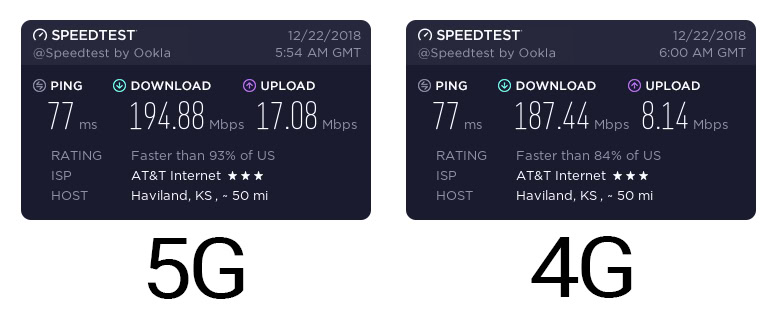Affiliate links on Android Authority may earn us a commission. Learn more.
Consumer AT&T 5G speedtest is similar to 4G speedtest ¯\_(ツ)_/¯
Published onJanuary 1, 2019

AT&T made a big fuss about the fact that it is the first wireless carrier in the United States to offer a consumer connection to a standards-based 5G network. One of the lucky few to actually connect to this network posted a 5G speedtest to Reddit recently, and the results are…underwhelming.
Reddit user “mwb6d” posted an image of their NETGEAR Nighthawk 5G Hotspot connected to AT&T’s 5G network. The user then posted two screenshots: a 5G speedtest using the Nighthawk in Indianapolis directly across the street from a low cell tower, and then a test using the same equipment in the same spot, but with the Nighthawk on LTE instead.
The two screenshots are below:

You’ll immediately notice that the two speedtests are very similar to one another. They both have the exact same ping time and their download speeds are in the same ballpark. The only big difference between 5G and 4G, it seems, is upload speed: the 5G speedtest shows that 5G uploads are more than twice as fast as 4G.
Why are these speedtests so similar? Shouldn’t the 5G test be crazy fast, or at the very least much faster than the 4G test?

While we would need AT&T to explain things to know for certain, analysis points to AT&T’s 5G network in Indianapolis being so young that it isn’t capable of delivering peak speeds. In fact, the current theoretical peak speed of AT&T’s 5G network is 625Mbps, much slower than theoretical peak speeds of 4G LTE (1.2Gbps).
In other words, even if you were lucky enough to get your hands on a 5G hotspot and also lucky enough to live in an area where 5G is active, the only advantage you’d likely find is faster upload speeds. For that, you’d have to haul around this Nighthawk hotspot, which hardly seems worth it.
This is probably why AT&T’s rollout of the Nighthawk hotspot is so small. As far as we know, the company didn’t give the hotspot to any journalists for testing and the two speedtests above are (so far, anyway) the only consumer 5G speedtests we’ve seen online. It’s not hard to conclude from this info that AT&T was more concerned with being first-to-5G than it was being anywhere ready to actually deploy 5G.
NEXT: AT&T customers: Don’t be fooled if you see a “5G E” indicator on your phone